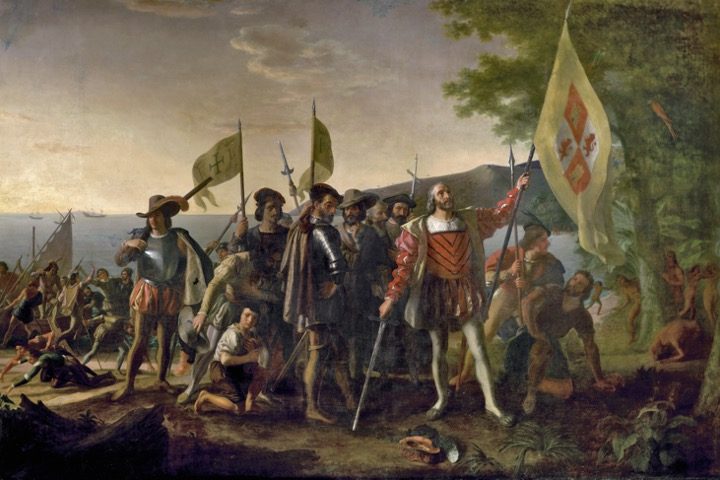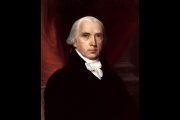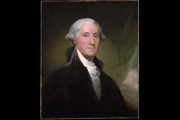
Happy Columbus Day!
Those three words could be enough to get me canceled in some circles. The fact that such a claim isn’t shocking to readers is not only a commentary on the vulnerable state of free speech in our country, but on the ignorance of history, as well.
Introduction
At the top, allow me to say that this article will be neither an encomium nor a condemnation of Columbus. It will be, however, an opportunity to remind all of us that in this case, as in every other case, we do not need to fall for the woke’s false dialectic of “Columbus is a hero” or “Columbus is a villain.” As with everyone reading this article and the man writing it, we’re all a complex mixture of hero and villain, and Christopher Columbus was no different.
Finally, this will not be a biography, but a brief attempt to correct the imbalanced perception of Columbus, to highlight those commendable aspects of Columbus’ voyages to the New World and his treatment of the native populations he encountered.
Origin of Columbus Day Holiday and His Nearly Forgotten Legacy
Initially envisioned as a commemoration of Italian American culture, Columbus Day was officially designated a federal holiday in 1937, primarily influenced by advocacy efforts led by the Knights of Columbus. Subsequently, the holiday’s date was shifted from October 12 to the second Monday of October, a change that took effect in 1971. According to research published by Pew Research Center, only 16 states and and the territory of American Samoa still observe the second Monday in October as an official public holiday exclusively called Columbus Day.
Although it isn’t discussed today, Columbus’ name was used as a poetic nickname for the United States, North America, and the New World in prior centuries. Even the name of the seat of the federal government reflects this fact: the Columbia in District of Columbia is the female personification of the United States. As explained in a Wikipedia article:
Columbia is a Neo-Latin toponym, in use since the 1730s with reference to the Thirteen Colonies which formed the United States. It originated from the name of the Genoese explorer Christopher Columbus and from the Latin ending -ia, common in the Latin names of countries (paralleling Britannia, Gallia, Zealandia, and others).
How many of the woke politicians, pundits, and muckrakers who live in D.C. realize that their city is named in honor of a man they have described as “a demon” and “a monster“? For that matter, how many woke Americans who hate Columbus and all things associated with the West know that the United States was known as Columbia, in honor of Christopher Columbus?
Reasons to Reconsider the Role of Columbus
Admittedly, Columbus is a figure in American history who has elicited both admiration and controversy. While some may question his actions and the impact of his voyages, it is important to recognize the contributions and historical significance of his expeditions to the New World. In fact, there are several reasons to be thankful for his role in history.
First and foremost, Christopher Columbus’ voyages in the late 15th century marked the beginning of a new era of exploration and discovery. His determination to find a westward route to Asia led him to stumble upon the Americas, which were previously unknown to the Old World. This momentous discovery opened up a new world of possibilities and laid the foundation for future exploration and colonization.
His voyages not only were instrumental in expanding the geographical knowledge of his time but also had far-reaching consequences for the course of history. His arrival in the Americas initiated a period of exploration and colonization by European powers that ultimately shaped the modern Western Hemisphere. The exchange of ideas, cultures, and resources between the Old World and the New World, known as the Columbian Exchange, had a profound impact on both sides of the Atlantic.
One of the most significant contributions of Columbus’ voyages was the establishment of a connection between Europe and the Americas. This connection facilitated the exchange of crops, animals, and technologies, which had a transformative effect on agriculture and nutrition. Crops such as maize, potatoes, and tomatoes became staples in European diets, helping to alleviate food shortages and improve nutrition, and crops such as wheat, sugar, and coffee found their way to the Americas, leading to economic growth and diversification.
Furthermore, the voyages paved the way for future exploration and colonization efforts that played a crucial role in the development of the United States. The arrival of other explorers and settlers in the Americas led to the establishment of colonies and the eventual formation of the United States. The principles of freedom, individual liberty, and self-governance that underpin American self-government can trace their roots to the European Enlightenment, which was significantly influenced by the exchange of ideas and cultures resulting from Columbus’ voyages.
His expeditions also had a profound impact on the spread of Christianity, as they opened up new opportunities for missionary work in the Americas, leading to the spread of Christianity among indigenous populations. While the methods of conversion were not without controversy and conflict, the introduction of Christianity played a significant role in shaping the religious landscape of the Americas.
It is important to acknowledge that Columbus’ actions were not without contention, and there were negative consequences for indigenous populations, including the introduction of diseases and conflicts. However, it is also essential to recognize that his voyages were a product of their time, and the historical context should be taken into account when evaluating his legacy.
In conclusion, Christopher Columbus’ voyages were a pivotal moment in history that had far-reaching consequences for the world. Despite popular pressure to believe otherwise, it is possible to appreciate the role he played in expanding knowledge, promoting cultural exchange, and laying the groundwork for the development of the United States. While we should not overlook the challenges and controversies associated with his legacy, there are indeed reasons to be thankful for the impact of Columbus on the course of history.
Commendable Contributions
There are some admirable and often overlooked facts about Christopher Columbus’ expeditions to the New World that deserve recognition. Here are a few for your consideration:
- Navigation Prowess: Columbus was an exceptional navigator of his time. Despite the limited knowledge of geography and technology available in the late 15th century, he successfully completed four transatlantic voyages, demonstrating remarkable skill in celestial navigation of uncharted waters.
- Courage and Determination: Columbus’ unwavering determination to find a westward route to Asia led him to embark on a perilous journey across the unknown Atlantic Ocean. His courage in the face of uncertainty and the daunting challenges of the open sea is admirable.
- Dedication to His Vision: Columbus persisted in his belief that he could reach Asia by sailing westward, even in the face of skepticism and hardship. His dedication to his vision played a pivotal role in opening up the Americas to European exploration.
- Cultural Exchange: While the consequences of the Columbian Exchange were complex, it’s important to acknowledge that Columbus’ voyages initiated a significant exchange of ideas, cultures, and goods between the Old World and the New World. This exchange ultimately enriched both hemispheres, by introducing to each new crops, animals, technologies, and cultures.
- Mapping the World: Columbus’ voyages contributed to expanding the geographical knowledge of the world. His explorations helped fill in gaps in maps and charts, paving the way for future navigators and explorers to further explore and understand the globe.
- Connection of Hemispheres: His voyages created a direct connection between Europe and the Americas, leading to increased trade, exploration, and cultural interactions. This connection laid the groundwork for the global interconnectedness we see today.
- Technological Advancements: The expeditions spurred advancements in shipbuilding and navigation techniques. The development of more seaworthy vessels and improved navigational instruments had a lasting impact on maritime exploration.
- Religious Endeavors: Columbus’ voyages had a religious dimension, as he aimed to spread Christianity to the lands he encountered. While the methods of conversion were often controversial, his efforts contributed to the global dissemination of Christianity and were an expression of the explorer’s commitment to the commandment to “preach the gospel to every creature” (Mark 16:15 KJV).
- Influence on Future Explorers: Columbus inspired numerous explorers who followed in his footsteps, such as Amerigo Vespucci, Ferdinand Magellan, and John Cabot, all of whom further expanded the understanding of the New World.
- Historical Catalyst: Columbus’ voyages marked the beginning of an era of exploration and colonization that shaped the course of world history. They set in motion a series of events that led to the formation of modern nations and the globalization of cultures and economies. While Leif Erikson made at least one voyage to the North American continent, the Norse never established permanent colonies, as did the Spanish and other European powers.
Conclusion
While it’s crucial to consider the complexities and consequences of Christopher Columbus’ voyages, recognizing these admirable aspects of his expeditions provides a more nuanced perspective of his historical significance and the enduring impact of his journeys to the New World, and helps all those who sincerely seek truth to reject the woke agenda and its demand that Columbus be vilified and forced from the historical record.



